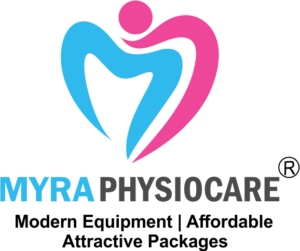Pregnancy (Pre& Post Natal Excercises) Physiotherapy
Pregnancy is a period of significant physical changes that can cause discomfort and pain. Physiotherapy can help to alleviate some of these symptoms and prepare the body for labor and delivery. Postnatal physiotherapy can also be helpful in recovering from the physical demands of childbirth and restoring strength and function to the body. Here are some pre and postnatal exercises that a physiotherapist may recommend:
Pre-natal exercises:
Pelvic floor muscle exercises: Strengthening the pelvic floor muscles can help to prevent urinary incontinence and improve pelvic stability during pregnancy and labor.
Core stability exercises: Exercises that focus on strengthening the deep abdominal muscles can improve posture and reduce the risk of back pain.
Low-impact aerobic exercises: Walking, swimming, and cycling can help to maintain cardiovascular fitness and improve circulation.
Kegel exercises: These exercises involve contracting and relaxing the muscles of the pelvic floor, and can be helpful in preparing the body for labor and delivery.
Yoga or Pilates: These types of exercises can improve flexibility, strength, and relaxation, and may be helpful in reducing stress and anxiety during pregnancy.
Post-natal exercises:
-
Pelvic floor muscle exercises: Strengthening the pelvic floor muscles can help to improve bladder control, reduce the risk of prolapse, and improve sexual function.
-
Abdominal exercises: Gentle exercises that focus on the deep abdominal muscles can help to restore core strength and reduce the risk of back pain.
-
Low-impact aerobic exercises: Walking, swimming, and cycling can help to improve cardiovascular fitness and promote weight loss.
-
Kegel exercises: These exercises can help to improve pelvic floor strength and control, which can be particularly helpful after childbirth.
-
Posture and body mechanics: Physiotherapists can provide advice on proper posture and body mechanics during daily activities, such as lifting and carrying the baby, to prevent injury and strain.
- Breastfeeding posture: A physiotherapist can provide advice on proper breastfeeding posture and techniques to prevent back pain and shoulder pain.
Diastasis recti exercises: Diastasis recti is a common condition where the abdominal muscles separate during pregnancy, and can lead to weakness and back pain. A physiotherapist can provide exercises to strengthen the abdominal muscles and reduce the separation.
Postpartum pelvic floor rehabilitation: A physiotherapist can perform an assessment of the pelvic floor muscles to determine if any damage occurred during childbirth and provide a rehabilitation program to restore the function of the pelvic floor muscles.
Scar management: If you had a cesarean section, a physiotherapist can provide advice on scar management techniques to improve the appearance and reduce discomfort and pain.
Infant care exercises: A physiotherapist can provide exercises to improve muscle strength and flexibility for parents who are caring for their newborns, such as lifting, carrying, and feeding.
Return to exercise program: A physiotherapist can provide advice on safe and effective exercises to gradually return to physical activity after childbirth, taking into account any injuries or conditions that may have occurred during pregnancy or childbirth.
